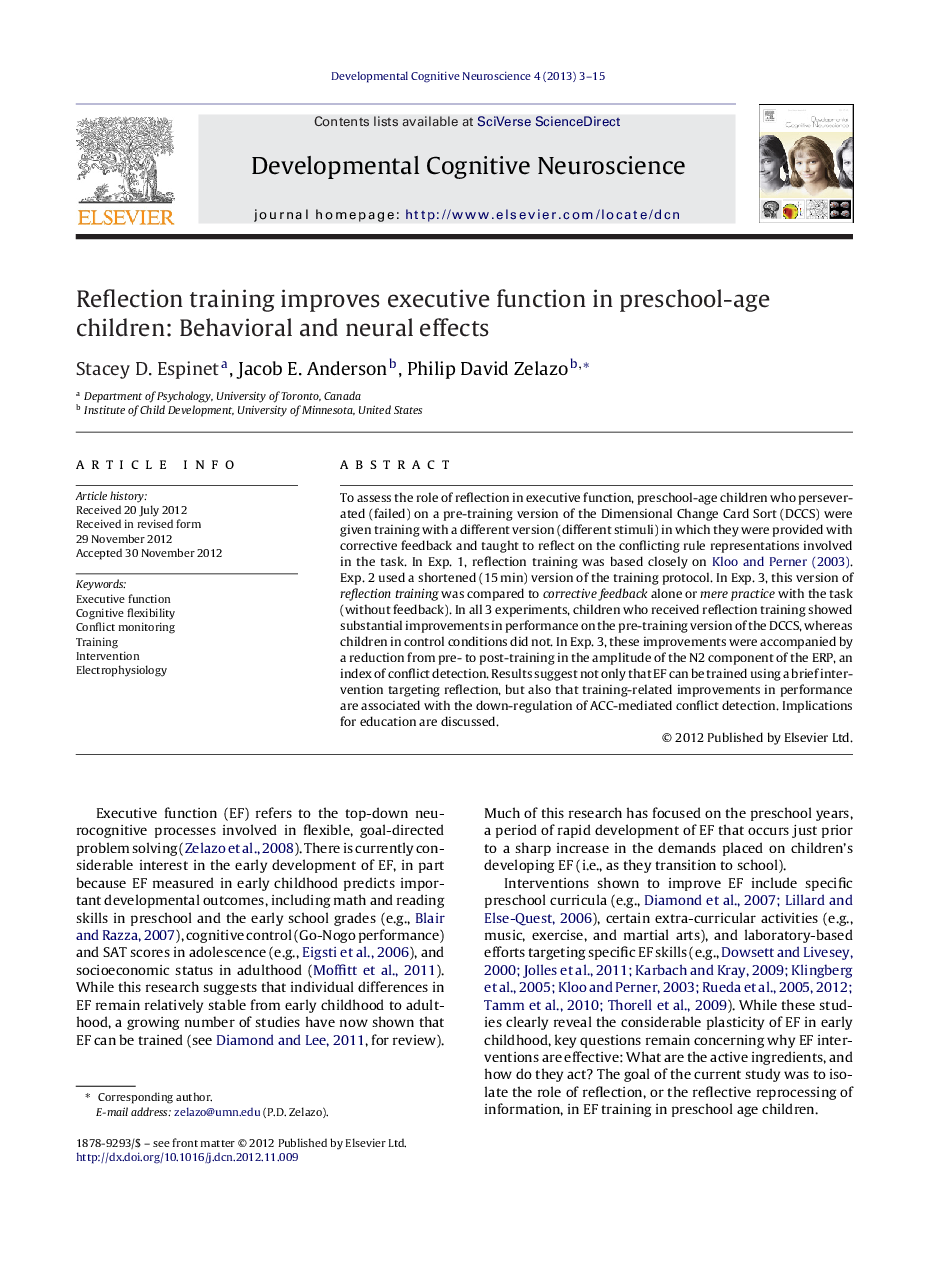| Article ID | Journal | Published Year | Pages | File Type |
|---|---|---|---|---|
| 4316742 | Developmental Cognitive Neuroscience | 2013 | 13 Pages |
ABSTRACTTo assess the role of reflection in executive function, preschool-age children who perseverated (failed) on a pre-training version of the Dimensional Change Card Sort (DCCS) were given training with a different version (different stimuli) in which they were provided with corrective feedback and taught to reflect on the conflicting rule representations involved in the task. In Exp. 1, reflection training was based closely on Kloo and Perner (2003). Exp. 2 used a shortened (15 min) version of the training protocol. In Exp. 3, this version of reflection training was compared to corrective feedback alone or mere practice with the task (without feedback). In all 3 experiments, children who received reflection training showed substantial improvements in performance on the pre-training version of the DCCS, whereas children in control conditions did not. In Exp. 3, these improvements were accompanied by a reduction from pre- to post-training in the amplitude of the N2 component of the ERP, an index of conflict detection. Results suggest not only that EF can be trained using a brief intervention targeting reflection, but also that training-related improvements in performance are associated with the down-regulation of ACC-mediated conflict detection. Implications for education are discussed.
▸ Reflection training improves children's executive function. ▸ Reflection training leads to smaller N2s compared to controls. ▸ Reductions in N2 amplitude are associated with slower RTs and better performance. ▸ Neural effects of reflection training resemble those occurring with development. ▸ Reflection supports the down-regulation of ACC-mediated conflict detection.
